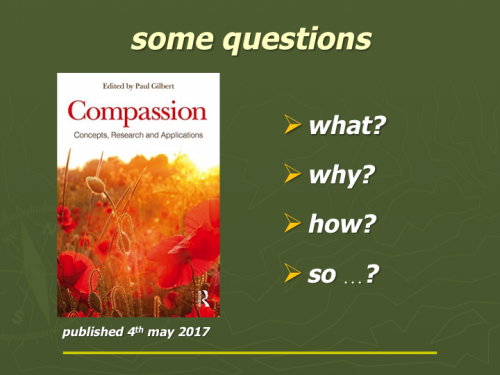Compassion, wisdom & wellbeing: an 8 week training
Last updated on 1st April 2018
A good friend & I have just been sorting out the practical details of running an 8 week course together on "Compassion, wisdom & wellbeing", starting in January. Some aspects still need to be tweaked, but the basic publicity information runs like this:
"If you want others to be happy, practise compassion. If you want to be happy, practise compassion." Dalai Lama
"Wisdom, compassion, & courage are the three universally recognized moral qualities of men." Confucius

